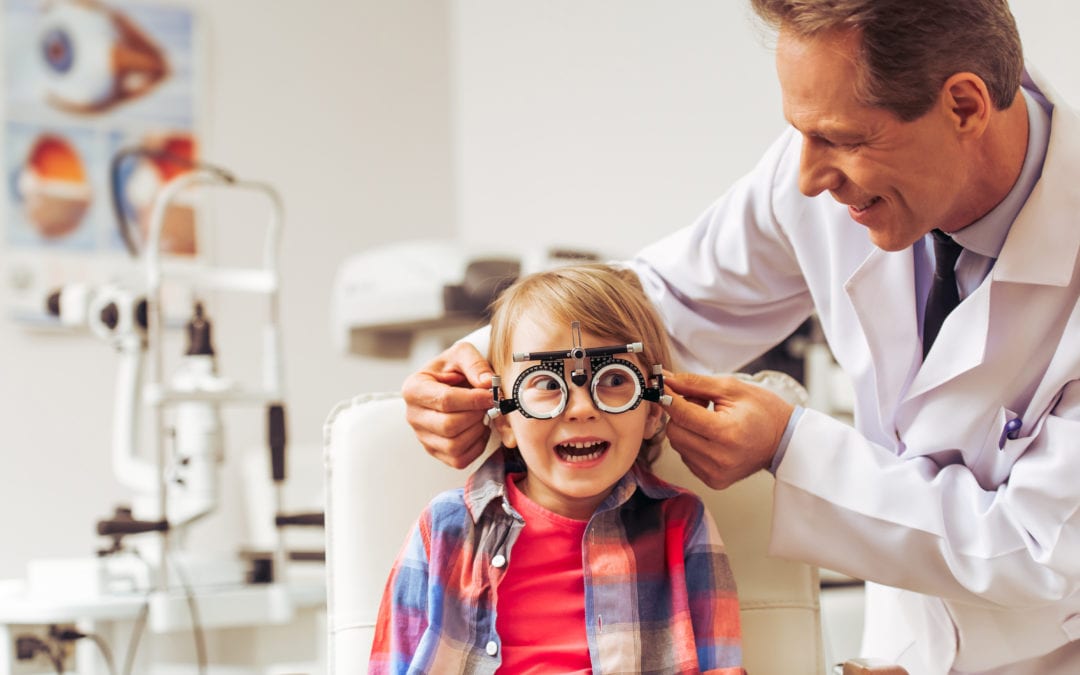How an Ophthalmologist Can Assist Prevent and Manage Common Vision Problems Successfully
The role of an eye medical professional expands much past merely prescribing glasses; it incorporates a detailed method to stopping and handling numerous vision issues. By developing individualized treatment plans and offering advice on preventative treatment strategies, eye care experts guarantee that clients are geared up to maintain ideal eye health.
Significance of Regular Eye Exams

Moreover, normal eye exams can disclose systemic health problems, consisting of diabetes and high blood pressure, as the eyes commonly show adjustments in general health and wellness. Establishing a regular timetable for eye examinations, commonly each to 2 years, allows for timely interventions and can aid maintain vision.
Individuals in certain age or with particular risk aspects, such as a family members background of eye condition or chronic health and wellness problems, might take advantage of more frequent assessments. By prioritizing these visits, individuals can guarantee they obtain personalized care tailored to their distinct requirements. Inevitably, normal eye exams play a pivotal function in both aggressive and preventive eye treatment, enabling individuals to keep their lifestyle and aesthetic function.
Early Discovery of Vision Problems
Early discovery of vision troubles is crucial for efficient administration and therapy, as timely intervention can considerably alleviate the progression of eye problems. Routine eye assessments work as a crucial tool in identifying potential concerns prior to they intensify into much more severe problems. Eye medical professionals use different diagnostic techniques to evaluate visual acuity, eye alignment, and total eye wellness, allowing them to find irregularities at an onset.
Usual vision troubles, such as refractive errors, cataracts, and glaucoma, may not offer obvious signs initially. Therefore, regular testings are vital for individuals of any ages, specifically those with a family members background of eye disorders or various other danger factors. Early recognition permits prompt references to professionals and can result in far better results, decreasing the chance of issues.
Furthermore, developments in modern technology have enhanced the ability to diagnose conditions early, thereby enhancing the effectiveness of succeeding interventions. Individuals should be positive in organizing regular appointments and interacting any adjustments in their vision to their eye care copyright. By prioritizing early discovery, individuals can take substantial strides towards protecting their vision and keeping overall eye health and wellness.
Personalized Therapy Plans
When vision issues are identified, the formula of individualized therapy plans ends up being crucial to deal with the one-of-a-kind needs of each client. Optometrist utilize extensive evaluations, consisting of aesthetic skill tests, refraction assessments, and ocular health and wellness assessments, to collect critical information about a client's specific conditions. This data helps in designing targeted interventions that line up with the person's way of living, choices, and total wellness status.
Personalized treatment strategies may integrate a series of choices, including restorative lenses, medications, or advanced treatments customized to details problems such as glaucoma, macular deterioration, or diabetic person retinopathy. Additionally, the incorporation of instructional components is important, as clients are informed about their problems and the reasoning behind the selected treatment strategies. This collaborative approach cultivates a higher sense of ownership and adherence to the therapy routine.
Additionally, follow-up appointments are essential for keeping an eye on development and making modifications as required. By prioritizing personalized therapy plans, eye treatment professionals check here can not just improve the effectiveness of treatments yet additionally enhance the total high quality of life for their patients, equipping them to handle their vision wellness proactively and properly.
Preventive Care Methods
Preventative care methods play an important duty in preserving optimum eye health and protecting against the start of vision issues. Regular eye assessments are essential, as they allow eye treatment experts to spot possible problems early, also before signs and symptoms manifest. These evaluations can identify refractive mistakes, cataracts, and glaucoma, enabling prompt intervention.
Along with routine examinations, adopting a healthy way of living dramatically adds to eye health. A well balanced diet regimen abundant in vitamins A, C, E, and omega-3 fatty acids can improve aesthetic feature and reduce the threat of age-related macular deterioration. In addition, safeguarding the eyes from unsafe ultraviolet (UV) rays by putting on sunglasses with appropriate UV defense is essential in protecting against problems like cataracts.
Restricting display time and exercising the 20-20-20 guideline-- looking at something 20 feet away for 20 secs every 20 minutes-- can ease electronic eye stress. Frequently participating in exercise also advertises total wellness, consisting of eye health and wellness. Lastly, avoiding smoking cigarettes is crucial, as it enhances the threat of various eye diseases. By implementing these preventative treatment approaches, individuals can significantly improve their eye health and decrease the probability of developing serious vision troubles. eye doctor.

Function in Managing Chronic Conditions
Taking care of persistent conditions frequently needs a collaborative strategy, and ophthalmologist play an essential role in this process. Lots of systemic illness, such as diabetes and hypertension, have significant ocular ramifications that can affect vision. Optometrist are important in monitoring and taking care of these conditions, as they can identify early indicators of problems that may not appear to visite site the patient or medical care company.
For example, diabetic person retinopathy is a typical repercussion of unmanaged diabetic issues, and regular eye examinations can help with early treatment, stopping extreme vision loss. Optometrist can also provide tailored guidance regarding lifestyle changes and needed medical referrals to guarantee comprehensive individual treatment.
Additionally, problems like autoimmune conditions may manifest eye signs, necessitating an ophthalmologist's proficiency in both vision treatment and the underlying systemic concerns. eye doctor. By working closely with medical care medical professionals and other specialists, eye medical professionals help coordinate therapy approaches that encompass both overall and visual wellness

Final Thought
Finally, the duty of an eye doctor is essential in avoiding and taking care of typical vision issues. Regular eye tests promote early discovery of issues, allowing individualized therapy plans tailored to individual needs. Through the application of preventative treatment approaches and persistent administration of persistent conditions, optometrist contribute dramatically to the enhancement of overall vision wellness. The proactive method adopted by these specialists emphasizes the significance of keeping ideal eye wellness throughout life.
By developing personalized therapy plans and using guidance on preventative care techniques, eye care professionals make sure that individuals are geared up to keep ideal eye health.Normal eye examinations are important for keeping optimal vision and overall eye health and wellness. During an eye exam, an eye care professional assesses visual acuity, assesses the health of the eyes, and may do tests to check for problems such as glaucoma, cataracts, and macular degeneration.
Eye physicians use different analysis techniques to evaluate aesthetic acuity, eye alignment, and general eye wellness, enabling them to find abnormalities at an early phase.
Regular eye exams are basic, as they allow eye treatment professionals to find prospective issues early, even try this site before symptoms show. (eye doctor)